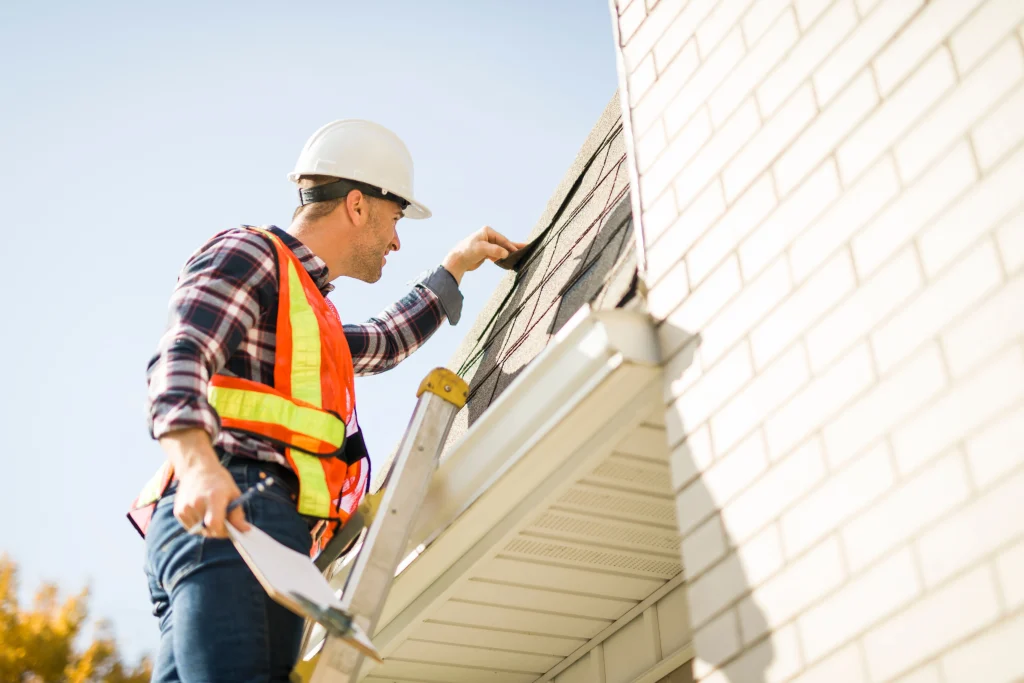Fraud & Myths
Home / Fraud & Myths
Protect Your Home and Your Wallet
From debunking common myths to exposing fraud schemes, learn the facts to safeguard your coverage.
Do Insurance Companies Avoid Paying Claims?
A common misconception in Florida is that home insurance companies are denying an excessive number of claims, particularly after hurricanes. However, the reality is a bit more complex.
Regulations Prevent Unjust Denials
- Insurance companies are closely regulated and would face penalties and fines if they were found to be wrongfully denying a substantial number of claims. These regulations exist to ensure that policyholders receive the coverage they are entitled to under their policies.
Flood Coverage
- Storm surge and flooding are not covered under standard homeowners insurance—they require separate flood insurance policies. Many homeowners don’t realize this distinction, which can lead to denied claims.
FEMA’s Role in Flood Claims
- After a storm, FEMA may instruct homeowners to file claims with their home insurance carrier, knowing the claim will be denied. This is because FEMA requires proof of denial to process flood-related assistance. This can create the illusion that insurers are unfairly rejecting claims, when in reality, it is part of the process to access federal relief funds.
Hurricane Deductibles and Early-Season Claims
- Especially towards the beginning of hurricane season, homeowners may file claims only to realize their damage falls below their deductible. When this happens, the claim is closed without payment—not because the insurer is avoiding a payout, but because it’s more cost effective for the policyholder to pay out of pocket.
Insurance Companies Can’t Raise Rates Without Justification
- "Wear and Tear" Isn’t Covered Home insurance doesn’t cover damage caused by wear and tear. This includes aging roofs, rusted pipes, or appliances that eventually break down from regular use. To avoid surprises, it’s important to keep up with routine maintenance and address small issues before they become bigger problems.
The Bottom Line
- Florida insurance companies operate under strict oversight to ensure fair treatment of policyholders. While navigating insurance claims after a storm can be frustrating, understanding the regulations, coverage limitations, and industry practices helps separate fact from fiction.
Don’t Fall for These Other Common Misconceptions
Myth
Home insurance covers flood damage.
Fact
Flood damage requires a separate flood insurance policy. Standard homeowners insurance only covers water damage caused by events like a broken pipe or wind-driven rain.
Myth
Home insurance is legally required in Florida.
Fact
There’s no state law requiring homeowners insurance, but mortgage lenders typically make it mandatory to protect their investment.
Myth
If my home is damaged, my policy will cover everything.
Fact
Standard policies have limits and you may need additional endorsements to ensure full protection. It’s important to to review your coverage with your agent to make sure you have all the protection you need.
Myth
Insurance and warranties are the same thing.
Fact
Insurance covers sudden, accidental damage – like fire or storm damage. On the other hand, warranties handle wear and tear on appliances or home systems. Filing a claim for something your warranty should cover could even be considered fraud.
Myth
Insurance companies raise rates to boost profits.
Fact
Florida law caps insurance company profits at 4.5%. Any rate increases must be justified and approved by the Florida Office of Insurance Regulation (OIR). Insurers cannot raise rates without demonstrating that the adjustment is necessary based on claims trends and financial data.
Questions about coverage?
Insurance Fraud Can Impact Your Wallet
Fraudulent insurance claims are more than an inconvenience—they drive up premiums for honest homeowners like you. In Florida, fraud is a growing problem, particularly after storms or natural disasters. Here are some common schemes to watch for:

- Roofing Scams: Fraudulent contractors often knock on doors offering "free inspections" after storms, then file exaggerated or false claims that insurers—and eventually, homeowners—pay for.
- Staged Accidents: Fraudsters fake slip-and-fall injuries on your property to file illegitimate liability claims.
What to Watch For:
- Contractors or adjusters pressuring you to inflate repair or property claims.
- Unsolicited offers to “help” maximize your claim.
- Inaccurate invoices or exaggerated damage reports.
Report Fraud
If you suspect insurance fraud, don’t stay silent. Contact the Florida Department of Financial Services’ Insurance Fraud Hotline at 1-800-378-0445 or visit FraudFreeFlorida.com. Reporting fraud helps keep insurance costs fair for everyone.
Protect Yourself With the Right Knowledge
Protecting your home starts with knowing the facts and staying vigilant against fraud and misinformation. Here’s how you can stay ahead:
Review Your Policy Annually
Make sure you understand what’s covered and what’s not.
Work With Trusted Professionals
Only hire licensed contractors and never sign over your insurance benefits without careful consideration.
Report Suspicious Activity
If something doesn’t feel right, report it to your insurer or the Florida Department of Financial Services.
Now That You Know the Truth, Take Control of Your Coverage!
Understanding insurance myths and fraud means you’re now better equipped to make smarter decisions about your coverage. Protect your home, your wallet, and your peace of mind with your boosted Insurance IQ!
